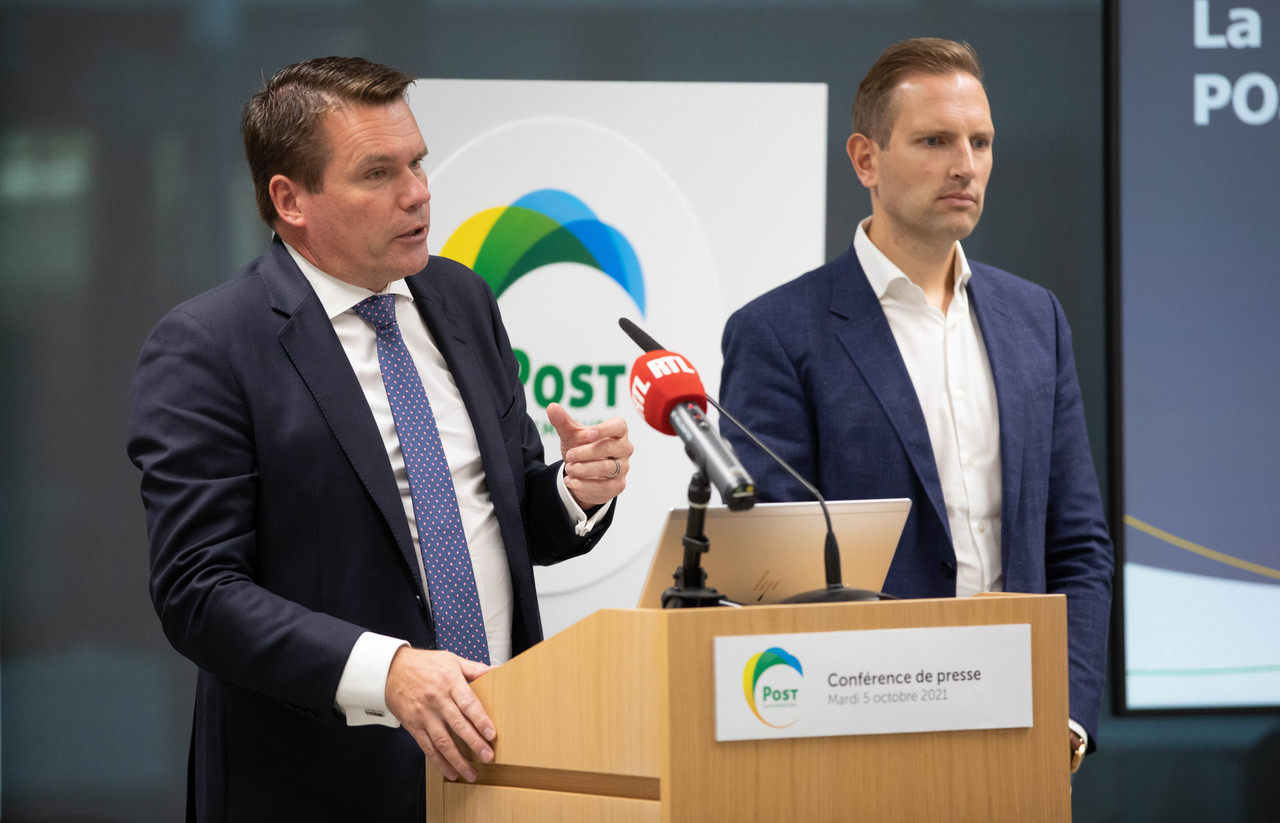Post Finance currently has nearly 180,000 private and professional customers and a turnover of €24m--versus the €864.4m achieved by the entire group in 2020 for a profit of €36.2m.
Post Finance doesn’t aim to offer the full range of usual banking services. Rather, its objective since the opening of the postal cheque and transfer service in 1911 has been to make means of payment available to as many people as possible and to promote financial inclusion, says Claude Strasser, the Post Group’s managing director. One third of customers do not have access to another banking alternative. For more extensive services, Strasser refers people to Raiffeisen Bank, his partner since 2016.
But lately eboo, Post Finance’s e-banking platform launched in 2020, is gaining momentum and is becoming the de facto business model for the financial subsidiary of the Post Group.
Focus on all-digital
The direction taken is that of more digitalisation of services, to the detriment of face-to-face operations which, in the new price scale, are to become exceptional supplementary operations. This changeover does not imply a reduction in the network, insists Claude Strasser. Post Finance’s 44 outlets are not threatened.
As of 10 January 2022, Post Finance customers will have a choice of four offers costing from €2 per month for the basic service, to €7, depending on the options added in terms of payment cards and insurance, or even more if you want to add additional or higher-standard cards. “It’s a simple and transparent price scale, with no nasty surprises,” explains Gabriel de La Bourdonnaye, director of Post Finance. For this price, all the services delivered via e-banking will be free, even those that previously had to be paid for, such as withdrawals from cash dispensers all over the world or foreign currency transfers.
These same services, if requested at the counter, will cost €3 each time. These include: cash withdrawals, balance consultation, the issuing of a RIB and transfers. De La Bourdonnaye puts the increase into perspective: “Most of these services are currently more expensive.” While admitting that these new fees may prove to be a deterrent, the idea is to encourage people to favour ‘free digital services’ wherever they exist by promoting electronic transfers and ATM withdrawals.
Fee waivers on request
There is no doubt that some users will be confused or even unable to use the digital tools offered, which is why a mechanism for exceptions has been introduced. Requests for an exemption will be analysed on a case-by-case basis.
Among the people potentially concerned, people over 80 years of age will retain free counter services as well as people suffering from certain pathologies that prevent them from using digital tools, such as the blind. A medical certificate will then have to be produced.
“As for people who have difficulties with the internet--digital illiteracy is a reality--they will have to be trained,” concedes de La Bourdonnaye. One such training mission was recently launched by the ministry of consumer protection, in collaboration with the CSSF and the ABBL Foundation for Financial Education.
“As for the impact on Post Finance’s turnover, it will be positive,” adds de La Bourdonnaye.
Getting rid of inactive accounts
But this surplus of income is not the desired goal, insists the head of Post Finance. The primary aim of this new price scale is to fight against inactive accounts, which represent high costs. A Luxtrust subscription, for example, costs €10 per year; platform maintenance and regulatory compliance are also relevant costs.
The other novelty of the fee schedule is the application of a negative interest rate of -0.5% for deposits of private and professional customers above €250,000, justified by the persistent situation of negative interest rates. This situation costs between €1.2m €1.6m per quarter, Strasser revealed during the presentation of the group’s financial results last spring.
Customers will be informed one by one of these changes, by mail and by personal interview if necessary, in order to be proposed the offer that best suits them.
The launch of Post Finance’s new commercial offer will go hand in hand with the gradual replacement of Easy VISA cards with those made from recycled plastic, and of all other Post-issued debit and credit cards with those made of corn. “A first in the country,” the company says.
This article in Paperjam. It has been translated and edited for Delano.
